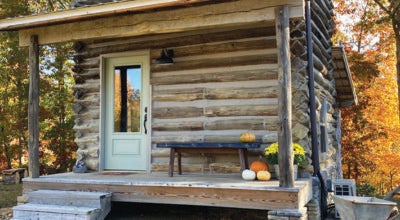The Literary Corner: Renegade Writer’s Guild
Published 2:52 pm Monday, May 10, 2021
|
Getting your Trinity Audio player ready...
|
Mother’s Day
By Linda H. Barnette
Although references to celebrations of motherhood can be traced as far back as the Greeks and Romans, Mother’s Day as celebrated in the United States dates back to the 19th century when one Ann Jarvis of West Virginia helped to start what she called “Mother’s Day Work Clubs,” designed to help local mothers learn how to properly care for their children. After the Civil War, Jarvis organized “Mother’s Friendship Day,” a time for women to gather with former Union and Confederate soldiers in order to promote reconciliation.
Julia Ward Howe also helped to give attention to mothers by writing what she called a “Mother’s Day Proclamation” asking mothers to unite in the cause for world peace.
The official Mother’s Day arose in the 1900s thanks to Anna Jarvis, daughter of Ann. After Ann died in 1905, Anna conceived of Mother’s Day as a way of honoring the sacrifices that mothers make for their children. Through the next few years, Anna appealed to politicians to have Mother’s Day added to the list of official holidays. By 1912 several states had done just that, leading President Woodrow Wilson to sign a measure establishing Mother’s Day as an official holiday to be celebrated on the second Sunday of May each year.
Whereas in the early days, the holiday was usually spent by children visiting their mothers on that day and often going to church with them, it soon became commercialized with families often giving mothers expensive gifts, cards, flowers, trips, and so on.
When I was growing up, we honored our mothers in simpler ways. We never had corsages, but on the morning of that day, Daddy picked us rosebuds from Mama Smith’s yard to pin to our dresses before church, white if your mother was deceased and red if she was still living. Often at church on that day the minister would recognize the oldest mother and the youngest one, but the sermon was always about motherhood. After church, we would gather for lunch at my grandmother’s house. All the ladies would bring their specialties, and we enjoyed a meal together rather like Christmas and other holidays.
How sweet it is to recall those innocent days of youth when life was simpler than it is now, and almost everything was centered around our families. Now those of us who are mothers and grandmothers consider spending the day together as the greatest gift of all.
Hinton Rowan Helper
By Linda H. Barnette
One of Davie County’s most famous (or infamous) residents was the writer Hinton Rowan Helper (1829-1809). The Helper home was located west of Mocksville on Highway 64 just east of Bear Creek on land which was once a part of the original Squire Boone land grant. The house, some think, was where the Boones lived early on, and later added to. The front room of the house had exposed log construction and some original split logs, perhaps still there. It was added to the National Register of Historic Places and declared a National Historic Landmark in 1973.
Helper’s father was a small farmer who died when Hinton was a baby. With the help of his extended family, he was educated at the Mocksville Academy and graduated in 1848. Shortly thereafter, he set out for California hoping to become wealthy during the Gold Rush. When that did not work out, he came home.
Over the next few years, Helper became an outspoken critic of the slavery system and wrote a book called The Impending Crisis of the South: How to Meet It. His thesis was that slavery should be abolished because it was, so he contended, an unprofitable economic model, calling it a “monstrous evil.” He also argued that the system was such that it benefitted only the upper class, which, if understood, might cause the poor folks not to support slavery as they did not profit from it.
The book was selected, along with Uncle Tom’s Cabin, by the Republican Party to be used as campaign material in the election of 1860. It was widely distributed in the South, causing Helper to be despised in that area. Many thought the book was instrumental in the election of Lincoln.
In any case, after the publication of the book, Helper could not find a job anywhere, so he appealed to Lincoln, who appointed him as the consul in Buenos Aires, Argentina in 1861. He married while there and had a son. After he came back to the states, he continued writing, but his wife went blind and returned to South America and took their son with her.
Helper lived the rest of his life without family and friends, largely ignored by those whom his writings had helped put into positions of power. He became mentally deranged and took his own life in March 9, 1909. He never returned to Davie County.
By Any Name
By N. R. Tucker
I spend a lot of time creating names for my science fiction and fantasy worlds: cities, countries, characters, animals, plants, man-made structures, and natural locations. Everything needs to be named, even if it ultimately doesn’t make it into my story.
Some characters simply need a name. Others require a name that matches their personality or the science fiction world/species I’ve created. And occasionally, I need a fitting moniker that isn’t held by anyone I know who might take offense because the character is not a nice person.
Did I devote as much time to the names of my children? No. In the 80s, no Google search provided thousands of names instantly. Their chosen names were not inspired, but they were based on flowing well with the middle (both family names) and surname. I’m ashamed to admit that I looked up the meaning of each adult child’s name for this article, crown or wreath for the eldest, and who-is-like-God for the youngest. I’m not sure I would have selected those names based on their meanings, but I’m not appalled by either definition. I will count that a lucky break. My name means grace. Considering how clumsy I can be, my mother didn’t look up the meaning of my name either unless she hoped to make me graceful by use of the name. If so, the plan failed.
Parents may actively search for the unusual when naming a child. The following examples, found via a Google search, prove this isn’t a new trend. In 1771 a child received the name Burp, and Drug was the first name of a child born in 1847 in Alabama. A child in Virginia received the name Custard in 1876. Meanwhile, in 1877, a young lass in Mississippi was named Etta Lot. In 1888, parents in South Carolina christened their child Gassy. England boasted a child named One Too Many in the 1870s. Alphabeta was the name given to an English baby in the 19th century and Staffordshire gave us Y. Nott, born in 1930. Parents in Chicago named their daughter Augusta Wind. And in 1968, in our state of North Carolina, a child was named Lasagna.
A few countries have a banned list, identifying names that can’t be bestowed on a newborn. Some are prohibited because the child’s name must properly align with the identity of the country. In Morocco, Sara is allowed, but Sarah isn’t because the letter “H” is banned in names.
Other names are banned to protect the child from mockery. Nutella is not allowed in France. Robocop is not permitted in Mexico, but alas, one child received that name before it was banned. Nirvana is on Portugal’s list of over 2,000 banned names, and in Australia, no child can be named Spinach.
Now, in addition to selecting a name for my characters, I also need to verify that the country they were “born” in allows the name I like. I may never complete another novel with all the naming research.
Memories of Kevin
The Renegade Writers’ Guild lost one of its original members on April 19, so for this week members wrote about their memories of him.
By Julie Cartner
To know so little and yet so much about a person,
He shared parts of himself and yet remained a private man,
A man like no other, warm, welcoming, kind,
A friend, a helper, a genuine talent,
Wise beyond his years,
A lifelong learner, a lifelong teacher,
An artist with words.
In the words of Shakespeare,
“His life was gentle; and the elements
So mixed in him, that Nature might stand up
And say to all the world, This was a Man.”
Kevin, we will miss you.
By N. R. Tucker
Kevin joined the Renegade Writer’s Guild stating he had a book in mind but didn’t know much about writing. As it turned out, he knew more than he thought and learned what he needed. His willingness to stretch and grow his craft — sharing with others what he learned — both inspired me and helped me more times than I can count, especially when Kevin offered a willing ear, or eyes, to help me sort through plot issues in my fantasy worlds.
Most of the guild, at one time or another, asked Kevin for help with their laptops. He was conversant in both Windows and Apple based machines and good at explaining things without the techspeak I’m prone to use.
I will miss Kevin and his insights into stories and life.
•••
For more information on Renegade Writers Guild, visit www.renegadewritersguild.wordpress.com.
•••
Submit a favorite memory of life in Davie County. Story should be typed and not more than 250 words. Please include your name and phone number or email address. RWG retains reprint rights. Email to lhb1@yadtel.net.





